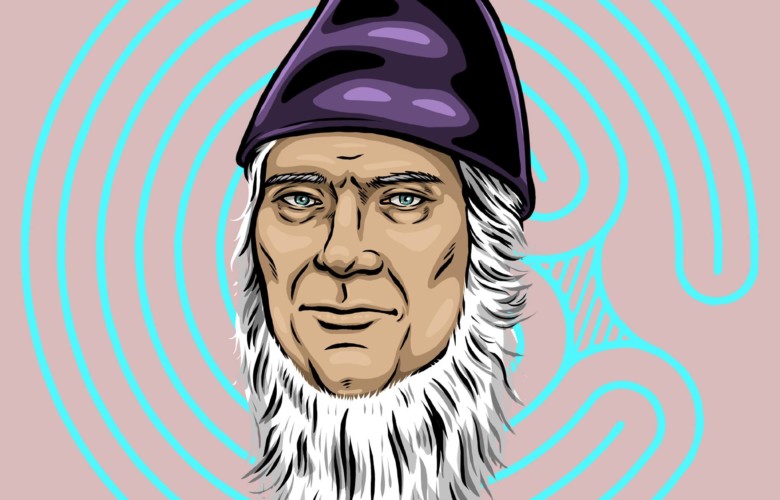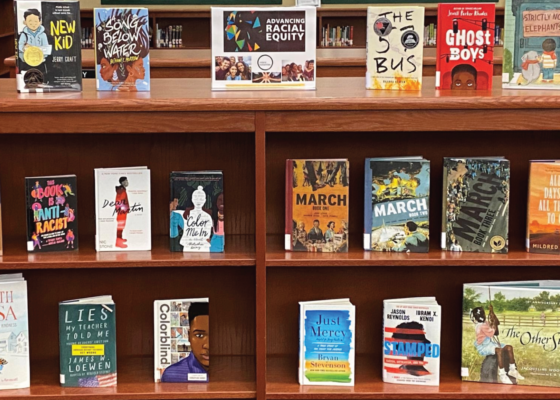Social Alchemy: A Collaborative Effort to Explore Utopia in Indiana
April 8, 2021On April 7, listeners near and far tuned in to hear the debut of a podcast episode telling the mystical and tragic journey of Father George Rapp, founder of an…
On April 7, listeners near and far tuned in to hear the debut of a podcast episode telling the mystical and tragic journey of Father George Rapp, founder of an early-1800s utopian society at New Harmony, Indiana.
The podcast is just one component of a multifaceted, multiyear project called Social Alchemy, produced by the Indianapolis cultural nonprofit Big Car Collaborative in conjunction with partners across the state. Using New Harmony as a case study, Social Alchemy explores historical and contemporary examples of utopian experiments, fictional utopias and dystopias, and social and cooperative-living design projects, with a goal of understanding of the relationship between the built environment and social good.
The project is supported with an Indiana Humanities Collaboration Grant, which provides funds for nonprofits to work together to deliver in-depth public humanities programming built around a core idea or theme. In addition to Big Car, partners contributing programs to Social Alchemy include Historic New Harmony, the Indiana State Museum and Historic Sites and the New Harmony Gallery of Contemporary Art.
Originally scheduled to take place in 2020–21, most of Social Alchemy’s programs saw delays from Covid. The project partners have remained committed, however, shifting some events online and extending them into 2022. Upcoming activities include:
- Additional audio programs related to utopian ideals, planned communities and related art and literature, with a focus on New Harmony’s past, present and future
- A series of exhibitions at the New Harmony Gallery of Contemporary Art focused on New Harmony’s visionary civic leader and preservationist Jane Blaffer Owen (1915–2010) and the Minerva Society of early feminist leaders
- A symposium in New Harmony that brings together philosophers, writers, historians, designers, architects, placemakers, planners and community organizers
- An exhibition at Big Car (also designed to travel) telling about the history and art of New Harmony with an emphasis on Angel in the Forest (a book about New Harmony by Hoosier author Marguerite Young)and visual interpretations of this lyrical text
Social Alchemy serves as an excellent example of what Indiana Humanities hopes to accomplish through the Collaboration Grant. One goal of the grant is to provide cultural groups with resources to offer Hoosiers rich humanities-based programming that engages them and encourages them to think, read and talk about meaningful topics. Another goal is to bring nonprofits together to work on a significant project, helping them to grow relationships, learn from one another and, we hope, foster partnerships that will endure.
Claire Eagle, community engagement manager at grant partner Historic New Harmony, acknowledged that Covid has made collaboration difficult over the past year but noted that it has also helped partners to be creative. “Although the pandemic put a damper in our plans,” she said, “it has allowed Historic New Harmony and Big Car to brainstorm new ways to collaborate.”
Eagle also said that the work with Big Car and the other partners has provided invaluable opportunities to educate people about the town and help them explore and understand its important contributions to national history. “New Harmony is a wonderful historic town,” she said, “but there are still a lot of people throughout the state that don’t know about our history or cultural offerings. [Social Alchemy] has worked to combat that.”
Indiana Humanities is awarding the Collaboration Grant again in 2021. Those interested in applying must first complete an inquiry form due April 30. If invited to do so, applicants must then submit a full proposal by July 31. More information is on Indiana Humanities’ grants page.
Indiana Humanities’ public history intern Lydia Prebish contributed to this blog post. Lydia will graduate from IUPUI in 2021 with a master’s degree in public history.



